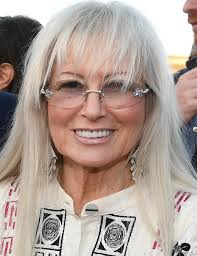
Introduction
Miriam Adelson, a prominent physician and philanthropist, has made significant contributions to various fields, particularly in healthcare and political advocacy. As the widow of casino mogul Sheldon Adelson, her visibility in philanthropic initiatives has garnered attention across North America. Her work has become increasingly relevant in contexts discussing public health, addiction treatments, and political funding in recent years.
Philanthropic Contributions
Through the Adelson Family Foundation, Miriam has committed millions to support medical research and treatment, particularly for addiction. Notably, the foundation has funded the Adelson Clinic for Drug Addiction Treatment at the University of Nevada, Las Vegas (UNLV). This clinic focuses on innovative treatments aimed at addressing the opioid crisis, a serious public health challenge that resonates with communities across Canada and the United States.
Involvement in Jewish Causes
Miriam Adelson’s philanthropy extends deeply into the Jewish community. She has funded numerous programs, including initiatives that promote Jewish education and cultural awareness. Her support for birthright programs that provide free trips to Israel for young Jews reflects her commitment to fostering a strong Jewish identity among youth. This aspect of her work highlights the significance of cultural philanthropy in strengthening communities.
Political Influence
Miriam has played a noticeable role in shaping political discourse, often aligning herself with Republican fundraising efforts. Following her husband’s death in January 2021, she has maintained the family’s substantial contributions to various election campaigns, including significant donations to pro-Israel and conservative political causes. This involvement signals a broader trend where high-profile philanthropists influence political agendas and policies in the U.S. and beyond.
Conclusion
The influence of Miriam Adelson in both healthcare and political spheres underscores the power of philanthropy among wealthy individuals. Her contributions address pressing social issues such as addiction and cultural identity while also steering political conversations that can impact legislation and funding. As she continues her philanthropic journey, observers of her work will likely watch for further initiatives that align with her values, particularly in tackling global health crises and nurturing cultural heritage. Additionally, her role will remain significant as political landscapes evolve, showing the enduring impact of financial support on policy-making in the years to come.



